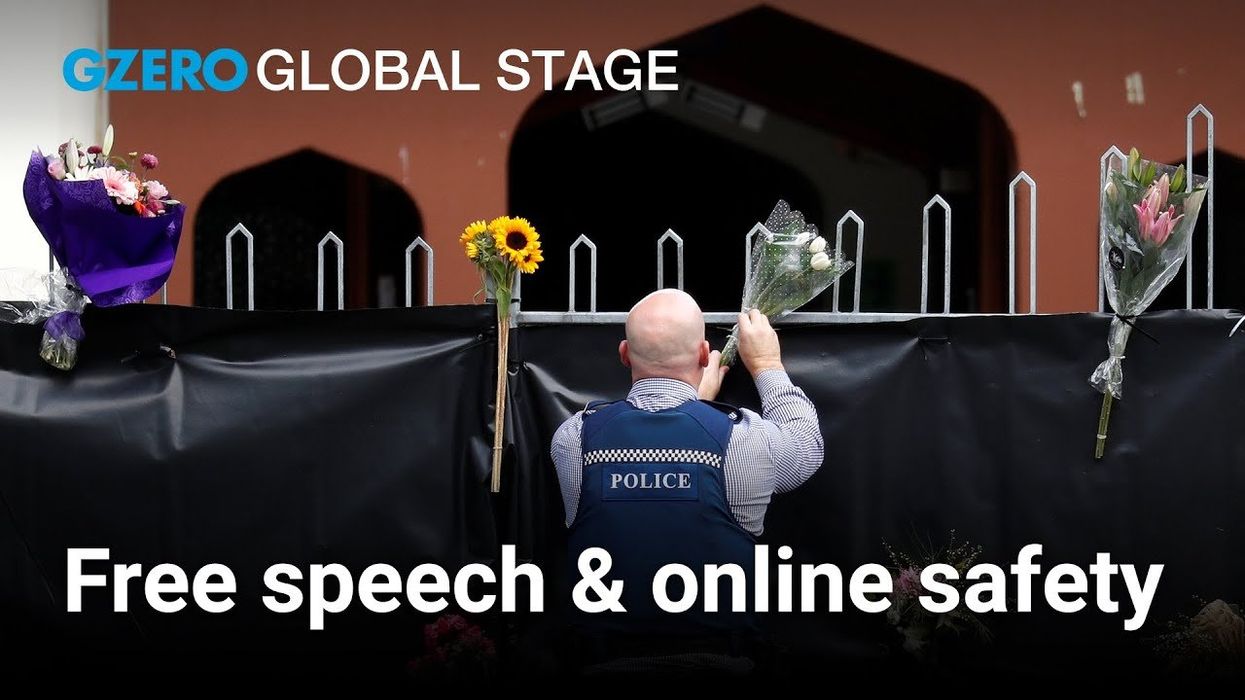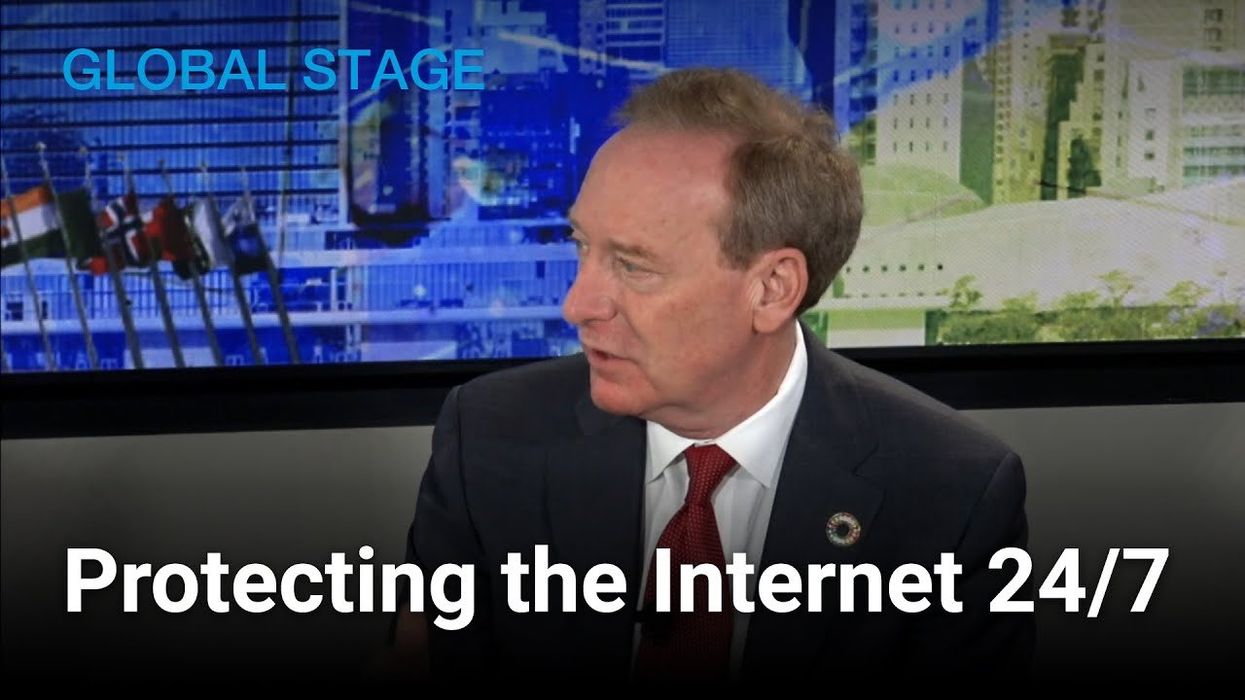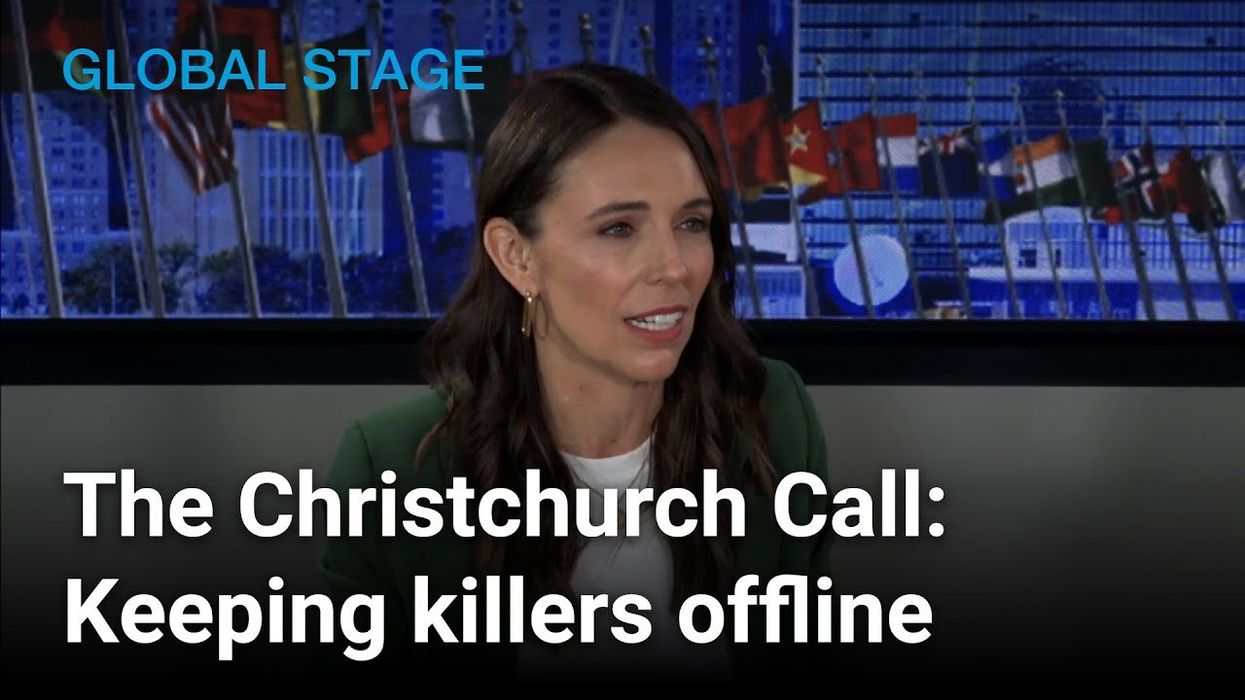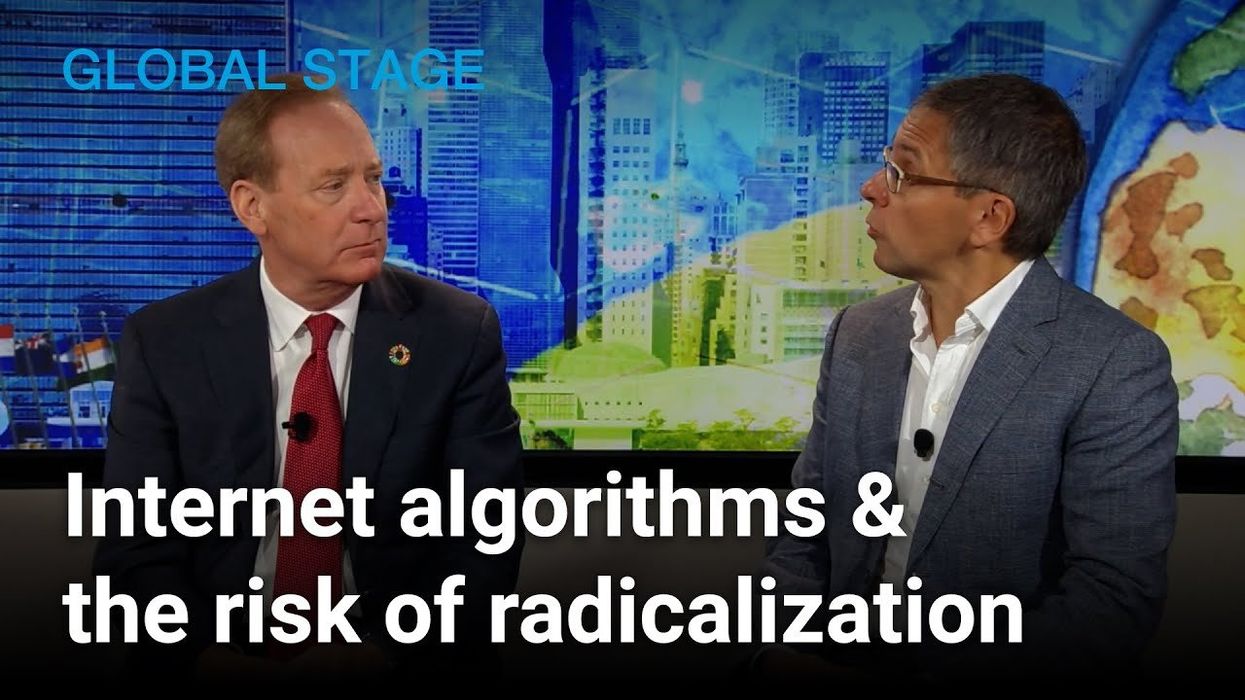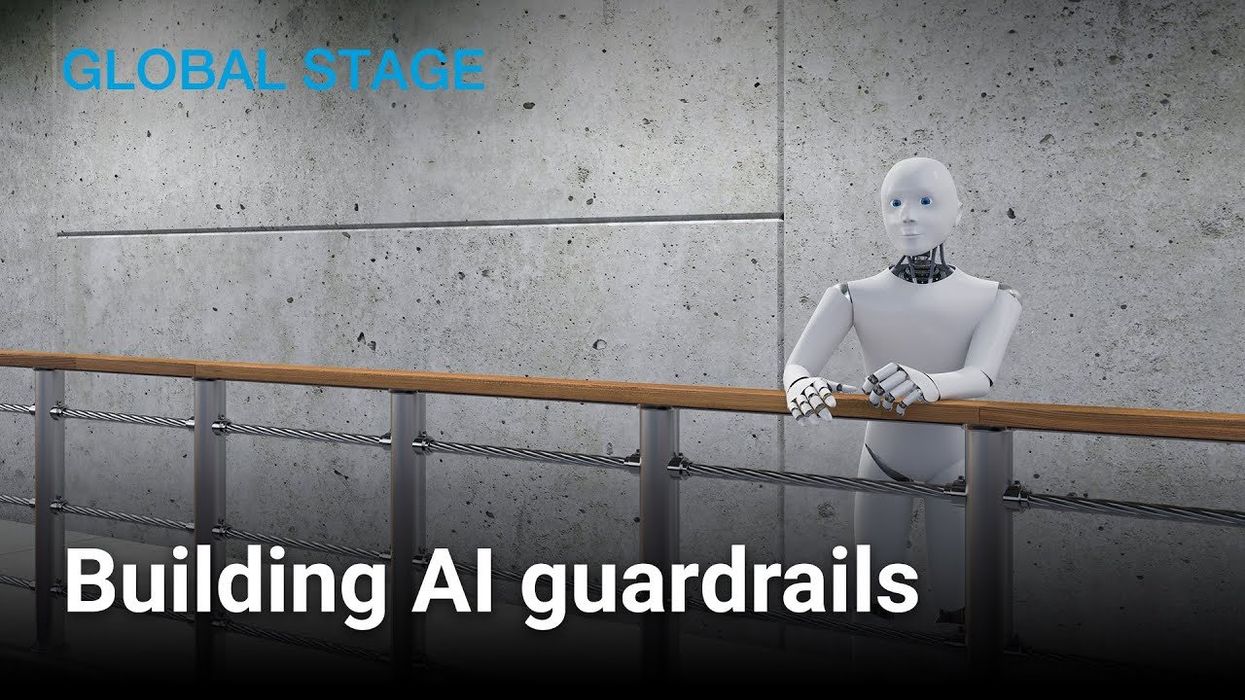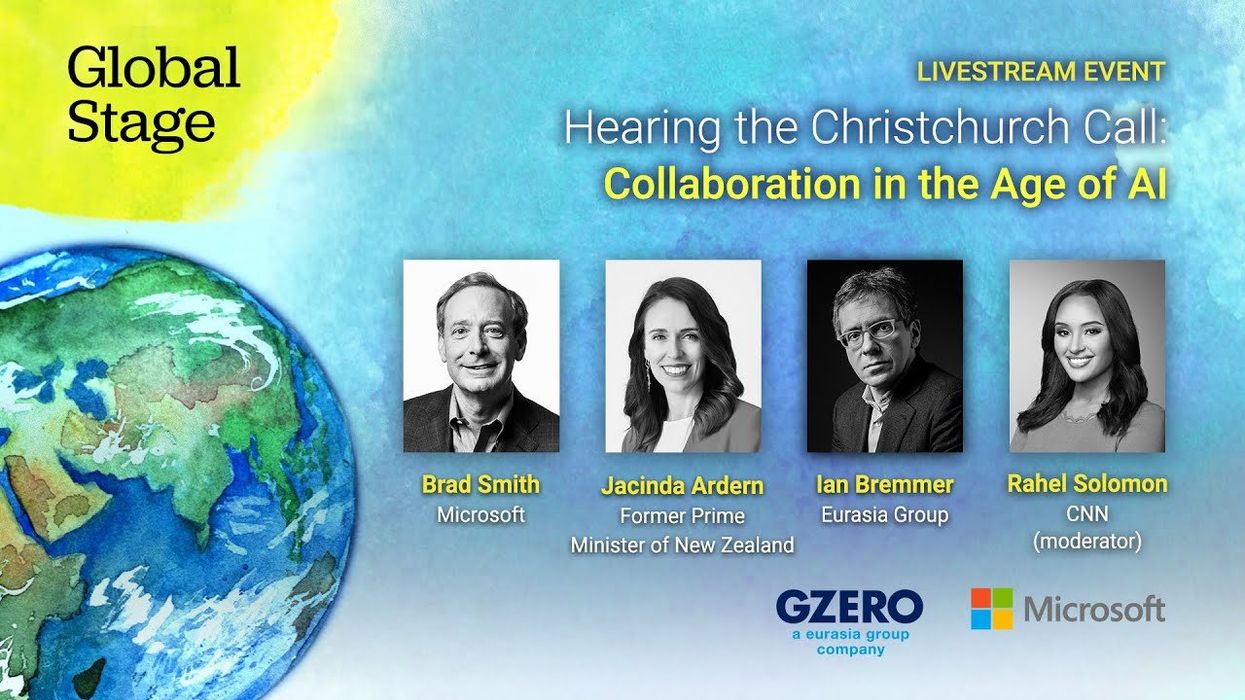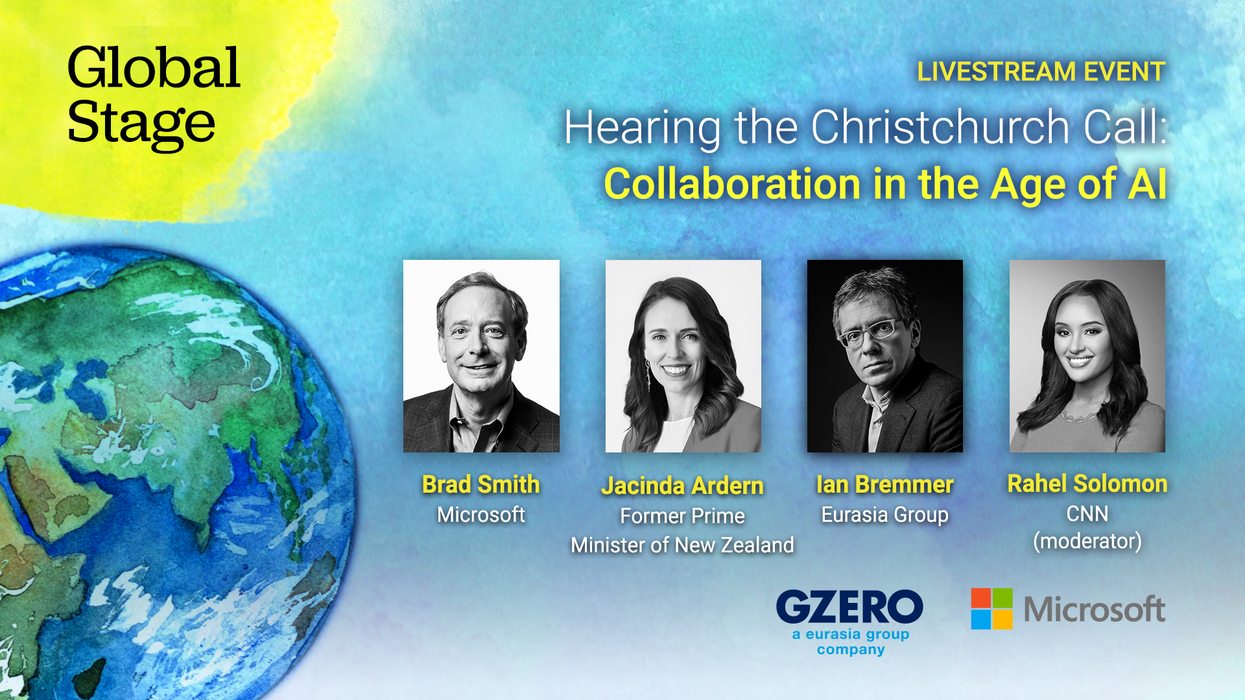Paris Peace Forum
Jacinda Ardern and Lisa Monaco on cybersecurity, AI, and protecting democracy
In an era characterized by rapid technological advancement, cybersecurity and artificial intelligence present both challenges and opportunities. At the 2025 Paris Peace Forum, GZERO’s Tony Maciulis engages in an insightful conversation with Dame Jacinda Ardern, former Prime Minister of New Zealand, and Lisa Monaco, President of Global Affairs at Microsoft, discussing strategies for a secure digital future.
Oct 31, 2025

